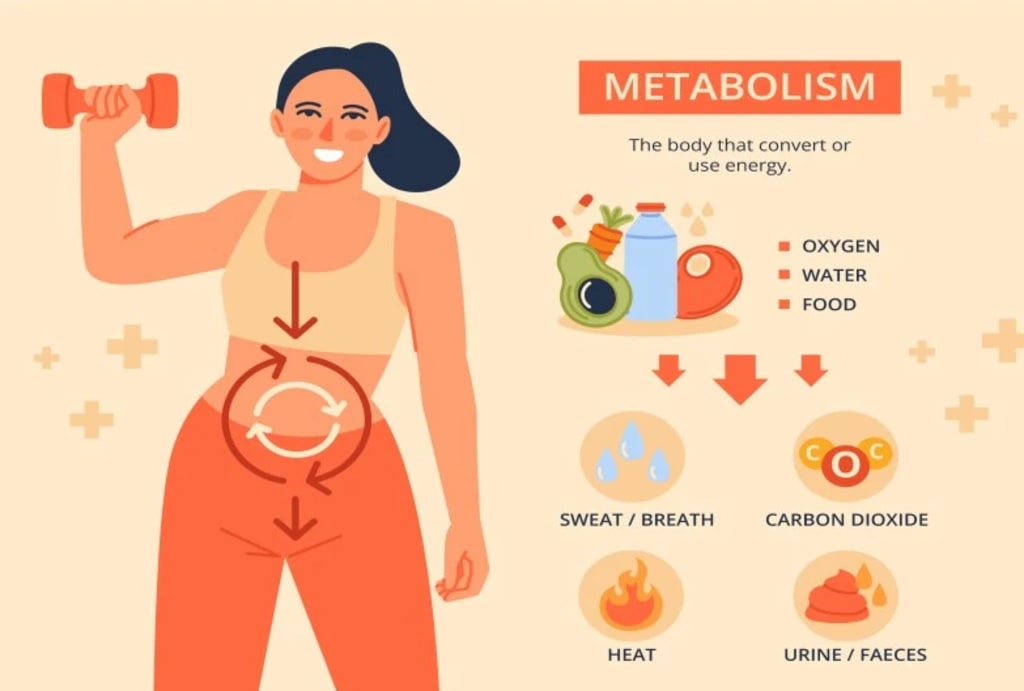cause of unexplainable weight gain and low metabolism
Why do people with slow metabolism gain weight?

### Unexplainable Weight Gain and Low Metabolism: Understanding the Causes
Weight gain can be a frustrating and perplexing experience, especially when it seems to occur without a clear cause. For many individuals, factors such as metabolism play a significant role in how their bodies manage weight. Here, we delve into the complexities of unexplainable weight gain and explore the underlying reasons behind low metabolism.
#### What is Metabolism?
Metabolism refers to the complex biochemical processes that occur within the body to maintain life. It encompasses the conversion of food and nutrients into energy that fuels bodily functions and activities. Two key components influence metabolism:
1. **Basal Metabolic Rate (BMR)**: This represents the energy expended by the body at rest to maintain basic physiological functions such as breathing, circulating blood, and regulating body temperature.
2. **Physical Activity and Exercise**: Additional calories are burned through physical activities and exercise, contributing to overall metabolic rate.
#### Causes of Low Metabolism
Several factors can contribute to a lower-than-average metabolism, including:
- **Age**: Metabolism tends to naturally slow down with age, primarily due to loss of muscle mass and hormonal changes.
- **Genetics**: Genetic factors can influence metabolic rate and how efficiently the body processes and stores energy.
- **Hormonal Imbalances**: Conditions such as hypothyroidism, polycystic ovary syndrome (PCOS), and insulin resistance can disrupt hormonal balance, affecting metabolism.
- **Dietary Factors**: A diet high in processed foods, excessive sugar, and unhealthy fats can negatively impact metabolism over time.
- **Lack of Physical Activity**: Sedentary lifestyles contribute to muscle loss and decreased calorie expenditure, thereby lowering metabolism.
#### Unexplainable Weight Gain: Beyond Calories In vs. Calories Out
While the principle of "calories in, calories out" generally governs weight management, unexplainable weight gain often suggests underlying complexities:
- **Water Retention**: Fluid retention due to hormonal fluctuations, medications, or dietary factors can temporarily increase weight.
- **Stress and Cortisol**: Chronic stress can elevate cortisol levels, which may lead to increased appetite and fat storage, particularly around the abdomen.
- **Medications**: Certain medications, such as antidepressants, steroids, and antipsychotics, can cause weight gain as a side effect.
- **Sleep Deprivation**: Poor sleep patterns can disrupt hormones that regulate hunger and satiety, potentially leading to weight gain.
#### Seeking Solutions
Addressing unexplainable weight gain and low metabolism often requires a multifaceted approach:
- **Balanced Diet**: Emphasize whole foods rich in nutrients, fiber, and lean proteins to support metabolic function.
- **Regular Exercise**: Incorporate both aerobic and resistance training exercises to boost metabolism and preserve lean muscle mass.
- **Stress Management**: Adopt stress-reduction techniques such as meditation, yoga, or deep breathing exercises to mitigate cortisol levels.
- **Medical Evaluation**: Consult with a healthcare provider to rule out underlying medical conditions and discuss appropriate treatment options.
#### Conclusion
Understanding the causes of unexplainable weight gain and low metabolism involves recognizing the interplay of various physiological, genetic, and lifestyle factors. By addressing these factors through informed lifestyle choices and, when necessary, medical intervention, individuals can effectively manage their weight and improve overall well-being.
### Why Do People with Slow Metabolism Gain Weight?
Metabolism plays a crucial role in how our bodies process energy and maintain weight. For individuals with a slower metabolism, weight gain can be a frustrating and often misunderstood phenomenon. In this blog post, we delve into the reasons why some people with slow metabolism may find it challenging to manage their weight effectively.
#### Understanding Metabolism
Metabolism refers to the biochemical processes that convert food into energy. It encompasses two primary components:
1. **Basal Metabolic Rate (BMR)**: This is the energy expended by the body at rest to maintain basic functions such as breathing, circulating blood, and regulating body temperature.
2. **Physical Activity and Exercise**: Additional calories are burned through physical movements and exercise, contributing to overall metabolic rate.
#### Factors Contributing to Slow Metabolism
Several factors can contribute to a slower-than-average metabolism:
- **Age**: Metabolism naturally slows down with age, primarily due to loss of muscle mass and hormonal changes.
- **Genetics**: Genetic factors can influence metabolic rate and how efficiently the body processes and stores energy.
- **Hormonal Imbalances**: Conditions like hypothyroidism, PCOS (polycystic ovary syndrome), and insulin resistance can disrupt hormonal balance, affecting metabolism.
- **Muscle Mass**: Muscle tissue burns more calories than fat tissue, so a lower muscle mass can contribute to a slower metabolism.
#### Impact on Weight Gain
When metabolism is slower, the body may not burn calories as efficiently, leading to several potential outcomes that contribute to weight gain:
- **Caloric Imbalance**: Consuming more calories than the body needs, especially if coupled with a sedentary lifestyle, can lead to weight gain over time.
- **Fat Storage**: With a slower metabolism, excess calories may be more readily stored as fat, particularly if dietary choices are high in sugars and unhealthy fats.
- **Energy Conservation**: The body may adapt to a slower metabolism by conserving energy, making weight loss efforts more challenging.
#### Challenges and Solutions
Managing weight with a slow metabolism requires a balanced approach:
- **Nutrition**: Focus on a balanced diet rich in fruits, vegetables, lean proteins, and whole grains to support metabolic function.
- **Physical Activity**: Incorporate regular exercise, including both aerobic activities and strength training, to boost metabolism and preserve lean muscle mass.
- **Sleep and Stress**: Prioritize quality sleep and manage stress levels, as both can influence hormones that regulate appetite and metabolism.
- **Medical Evaluation**: Consult with a healthcare provider to evaluate underlying conditions and explore treatment options if hormonal imbalances or other medical factors contribute to slow metabolism. Ikaria Lean Belly Juice Reviews
#### Conclusion
While a slower metabolism can present challenges for weight management, it's essential to adopt a comprehensive approach that includes healthy eating, regular physical activity, adequate sleep, and stress management. By understanding the factors contributing to slow metabolism and making informed lifestyle choices, individuals can effectively manage their weight and improve overall well-being.
About the Creator
peter
Content about cars, motorbikes, technology, news
Enjoyed the story? Support the Creator.
Subscribe for free to receive all their stories in your feed. You could also pledge your support or give them a one-off tip, letting them know you appreciate their work.






Comments
There are no comments for this story
Be the first to respond and start the conversation.